Archives New Zealand is New Zealand's national archive and the official guardian of its public archives. As the government's recordkeeping authority, it administers the Public Records Act 2005 and promotes good information management throughout government.
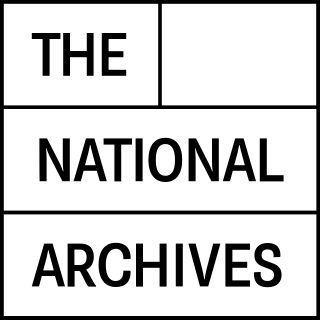
The National Archives is a non-ministerial department of the Government of the United Kingdom. Its parent department is the Department for Culture, Media and Sport of the United Kingdom of Great Britain and Northern Ireland. It is the official national archive of the UK Government and for England and Wales; and "guardian of some of the nation's most iconic documents, dating back more than 1,000 years." There are separate national archives for Scotland and Northern Ireland.

Library and Archives Canada is the federal institution tasked with acquiring, preserving, and providing accessibility to the documentary heritage of Canada. The national archive and library is the 16th largest library in the world. The LAC reports to the Parliament of Canada through the Minister of Canadian Heritage.
Copac was a union catalogue which provided free access to the merged online catalogues of many major research libraries and specialist libraries in the United Kingdom and Ireland, plus the British Library, the National Library of Scotland and the National Library of Wales. It had over 40 million records from around 90 libraries as of 2019, representing a wide range of materials across all subject areas. Copac was freely available to all, and was widely used, with users mainly coming from Higher Education institutions in the United Kingdom, but also worldwide. Copac was valued by users as a research tool.

The Bibliothèque et Archives nationales du Québec or BAnQ is a Quebec government agency which manages the province's legal deposit system, national archives, and national library. Located at the Grande Bibliothèque in Montreal, the BAnQ was created by the merging of the Bibliothèque nationale du Québec and the Archives nationales du Québec in 2006. The Bibliothèque nationale du Québec had previously merged with the Grande Bibliothèque du Québec in 2002.
In library and archival science, digital preservation is a formal process to ensure that digital information of continuing value remains accessible and usable in the long term. It involves planning, resource allocation, and application of preservation methods and technologies, and combines policies, strategies and actions to ensure access to reformatted and "born-digital" content, regardless of the challenges of media failure and technological change. The goal of digital preservation is the accurate rendering of authenticated content over time.

The Canadian Heritage Information Network is a special operating agency within the federal Department of Canadian Heritage that provides a networked interface to Canada's heritage institutions. It is based in Gatineau, Quebec, and is administratively merged with the Canadian Conservation Institute (CCI), another special operating agency of Canadian Heritage.
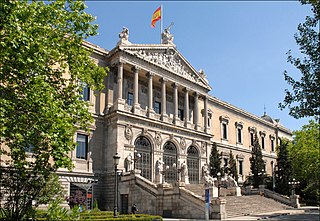
The Biblioteca Nacional de España is a major public library, the largest in Spain, and one of the largest in the world. It is located in Madrid, on the Paseo de Recoletos.

The United States Army Center of Military History (CMH) is a directorate within the United States Army Training and Doctrine Command. The Institute of Heraldry remains within the Office of the Administrative Assistant to the Secretary of the Army. The center is responsible for the appropriate use of history and military records throughout the United States Army. Traditionally, this mission has meant recording the official history of the army in both peace and war, while advising the army staff on historical matters. CMH is the flagship organization leading the Army Historical Program.

The State Library of North Carolina is an institution which serves North Carolina libraries, state government employees, genealogists, and the citizens of North Carolina. The library is the main depository for North Carolina state publications and serves the needs of North Carolina government agencies and state government employees by providing access to information resources that are vital to public decision-making and economic development.
The Digital Library of the Caribbean (dLOC) is an international digital library operated collaboratively by the contributing partners.

The Biblioteca Nacional de Portugal is the Portuguese national library.
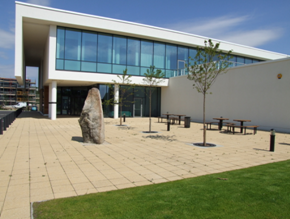
The Wiltshire and Swindon History Centre in Chippenham, Wiltshire, England, serves as a focal point for heritage services relating to Wiltshire and Swindon. The centre opened in 2007 and is funded by Wiltshire Council and Swindon Borough Council. It has purpose-built archive storage and research facilities and incorporates the local studies library, museums service, archaeology service, Wiltshire buildings record and the conservation service.
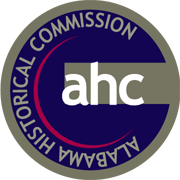
The Alabama Historical Commission is the historic preservation agency for the U.S. state of Alabama. The agency was created by an act of the state legislature in 1966 with a mission of safeguarding Alabama's historic buildings and sites. It consists of twenty members appointed by the state governor or who serve in an official position. The members represent a broad cross section of Alabamians including architects, historians, archaeologists, and representatives of state universities. The commission is tasked with acquisition and preservation of historic properties and education of the public about historic sites in Alabama.

Official statistics are statistics published by government agencies or other public bodies such as international organizations as a public good. They provide quantitative or qualitative information on all major areas of citizens' lives, such as economic and social development, living conditions, health, education, and the environment.
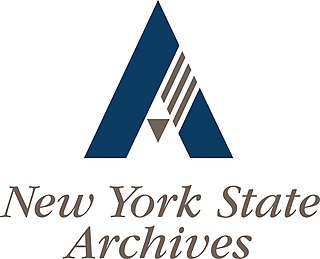
The New York State Archives is a unit of the Office of Cultural Education within the New York State Education Department, with its main facility located in the Cultural Education Center on Madison Avenue in Albany, New York, United States. The New York State Library and the New York State Museum are also located in the Cultural Education Center.
The Queensland State Archives is the lead agency for public recordkeeping in Queensland, Australia. It is the custodian of the largest and most significant documentary heritage collection about Queensland.
The National Archives of Costa Rica is a decentralized institution of the Ministry of Culture and Youth. It is the governing body of the National Archival System, which manages Costa Rica's documentary heritage and collaborates in the control of the country's notarial activities. Its goals are to preserve and allow access to the documentary history of Costa Rica in a transparent and sustainable way.

The National Library of Aruba is the main library of Aruba. It is located in Oranjestad and holds more than 100,000 volumes.
The National Documentation Centre is a Greek public organisation that promotes knowledge, research, innovation and digital transformation. It was established in 1980 with funding from the United Nations Development Programme with the aim to strengthen the collection and distribution of research-related material, and to ensure full accessibility to it. It has been designated as a National Scientific Infrastructure, a National Authority of the Hellenic Statistical System, and National Contact Point for European Research and Innovation Programmes. Since August 2019, it has been established as a discrete public-interest legal entity under private law, and is supervised by the Ministry of Digital Governance. The management bodies of EKT are the Administrative Board and the Director who, since 2013, has been Dr. Evi Sachini.












